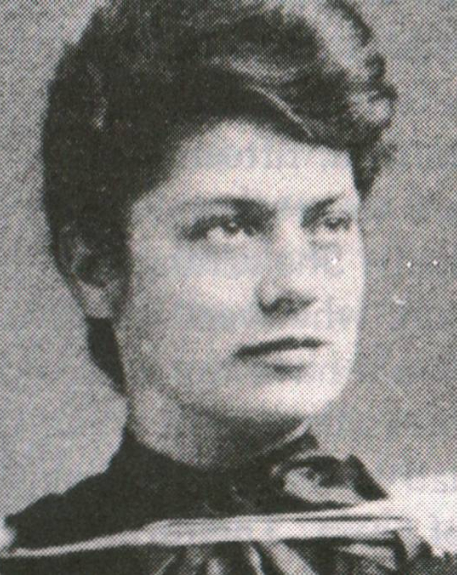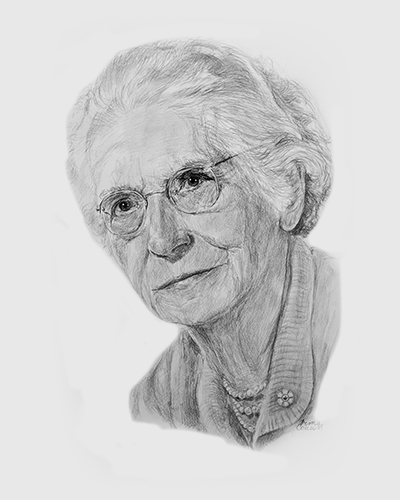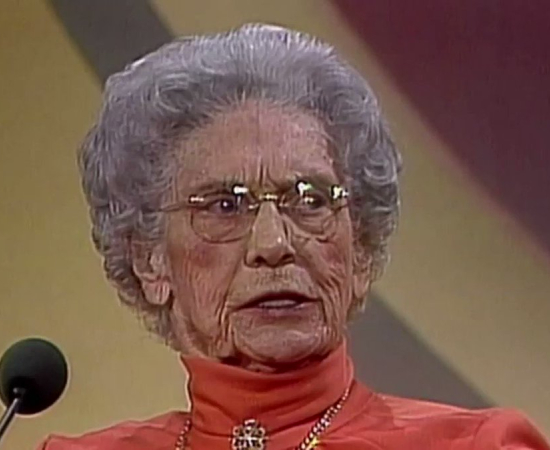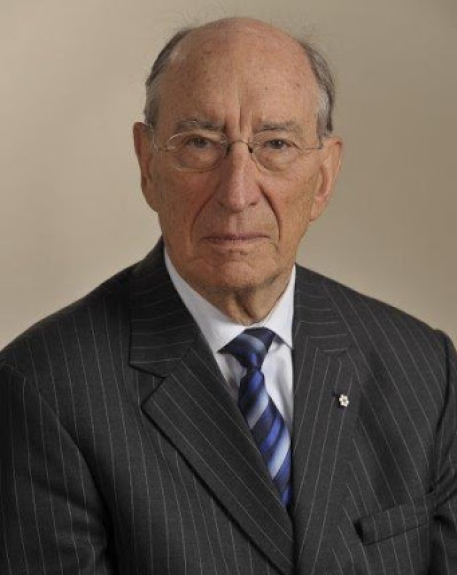2007 INDUCTEE Elizabeth Bagshaw, MD The Early Days - Health Care Pioneers, Public Health, Health Promotion & Advocacy, Women in Medicine, Female Reproduction, Patient Care, Diagnosis, Treatment and Prevention
October 19, 1881
(Cannington, Ontario)
January 5, 1982
MD, Women’s Medical College University of Toronto (1905)
1986: Appointed to Hamilton Gallery of Distinction
1979: Governor General Persons Award
See All AwardsAwards & Honours:
1986: Appointed to Hamilton Gallery of Distinction
1979: Governor General Persons Award
1974: Honorary LLD, McMaster University
1973: Member of the Order of Canada
1970: Hamilton Citizen of the Year

Pioneered family planning in Canada

A tireless champion of women’s health
Pursuing a career in medicine at a time when women were not accepted in the field, Dr. Bagshaw entered Toronto Women’s Medical College in 1901 just 18 years after it opened. After a short period of practice in Toronto, Dr. Bagshaw went to Hamilton to substitute for a female doctor who was on vacation. Liking the city so much, she moved there and began her 70-year career as a family physician with a primary focus on obstetrics. In the 1930s, despite intense criticism from the medical and religious communities, Dr. Bagshaw became actively involved in Canada’s first and illegal birth control clinic. She served as the clinic’s medical director for over 30 years pioneering areas of family medicine that, while universal now, were not widely practiced.
Key Facts
In her early years, she delivered more babies than any of her Hamilton Colleagues
Was one of the first female physicians in Hamilton
Travelled by horse carriage, bicycle and car to provide medical care to a large downtown population, serving many low-income families
Worked for ten years without pay in a dermatology clinic at the hospital while she maintained her family medicine practice
Founded the Canadian Federation of Medical Women
Professional timeline
Impact on lives today
As a tireless champion for the place of women in medicine and the rights of women to control their own reproductive destinies, Dr. Baghaw’s impact can be seen in the lives of many women today. Not afraid to challenge the status quo, Dr. Bagshaw’s entry into medical practice helped to normalize the presence of women in medicine; as of 2018, 56% of first year medical students in Canada were female. Moreover, in opening Canada’s first birth control clinic, Dr. Bagshaw provided a space where many women, for the first time, learned more about their own bodies and felt safe to express their reproductive choices. This pioneering work helped to change attitudes in Canada and, eventually, law. Today, there is more access to birth control than ever before, including the Elizabeth Bagshaw Reproductive and Abortion Care Clinic in Vancouver.

2007
-
Elizabeth Bagshaw posthumously inducted into the Canadian Medical Hall of Fame
London, Ontario
-
At the age of 95 and still with a practice of 50 patients, Dr. Bagshaw decided it was time to retire
Patient Care, Women in MedicineShe was the oldest practicing physician in Canada.
-
The Birth Control Clinic became legal
Public Health, Health Promotion & AdvocacyAfter 77 years, the section of Canada’s criminal code that made it illegal to advertise or sell birth control was removed. In time, Dr. Bagshaw’s clinic began receiving government grants.
-

Elizabeth Bagshaw founded Canada’s first birth control clinic
Public Health, Health Promotion & Advocacy, Women in Medicine, Female ReproductionThis pioneering work remained largely underground for decades as it was illegal at the time to dispense information on the subject or to give birth control devices.
-
Elizabeth Bagshaw became Director of the Planned Parenthood Society
The Early Days - Health Care Pioneers, Women in MedicineFaced with significant criticism from medical and religious communities as well as the loss of some patients, Dr. Bagshaw nevertheless persisted. She remained in this position for the next 30 years.
-
After graduation from medical school, began her work in family medicine
Diagnosis, Treatment and Prevention, Patient CareThe following year, she moved to Hamilton where she practiced medicine for the next 70 years.
-

Came to register at the University of Toronto
When asked what she was doing in the line with all men, she replied she was there to study medicine. The reaction of the men in line was laughter.
1901
She affected profound change at a time of enormous adversity.
Additional Resources:
- Doing the devil’s work: How U of T's Elizabeth Bagshaw became a pioneer in women's health
- Dr. Elizabeth Bagshaw honoured for birth control advocacy
- Doctor Woman: The Life and Times of Dr. Elizabeth Bagshaw
- CMHF Laureate biography - Elizabeth Bagshaw
- Elizabeth Bagshaw: Pioneer of Canadian Women’s Health


